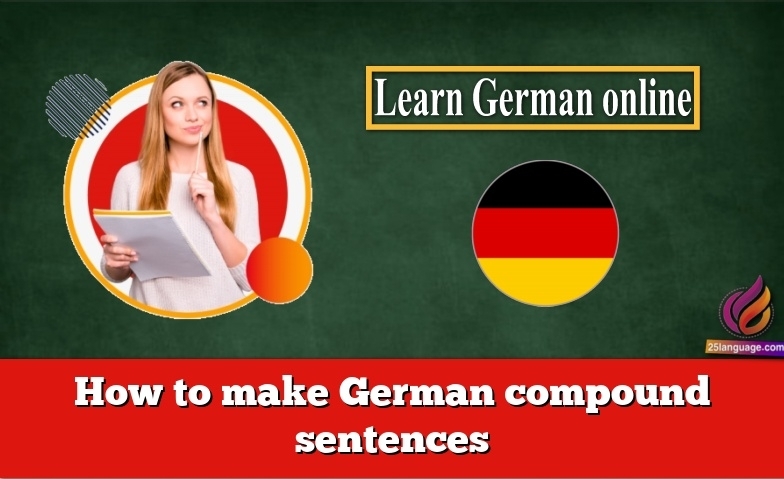How to make German compound sentences

German Compound Sentences
In this lesson , you will study German Compound Sentences and their application . Both German and English have compound sentences , the applications of these are enormous . They can be used in lists , but also in compound sentences .

For example :
| I play basketball, and he also plays basketball | Ich spiele Basketball, und er spielt auch Basketball |
The new word , “auch” , is very important and it means “also”. The one grammar rule about “auch” is that is always comes after the verb .
Other Verbs can be used in making German Compound Sentences and their conjugations :

Schauen , schreiben and schwimmen are all regular verbs , they follow normal conjugations . To conjugate , you first remove the ‘ en ‘, then add the correct ending . Here is an example :
| Verb | First Step | Finished |
| schauen | schau | ich schaue |
- Arbeiten is an irregular verb , however it has a simple change . Whenever the ending starts with a consonant , an ‘e’ is added before it . So it would be du arbeitest , not du arbeitst . As well as er, sie, es, and ihr arbeitet, not er, sie, es, and ihr arbeitt .
- Lesen is also an irregular verb . First , when forming with “du, er, sie, and es”, it is du liest , not du liesst or du lesst .
- Sehen is the last irregular verb . When forming “du” it is siehst and with “er, sie, and es” it is sieht .
Two More Verb Forms :
There are two more verb forms in English that you will learn this lesson : the present progressive (“I am playing, he is making”) , and the affirmative “I do play, he does not play”, which includes a form of ‘to do’ .
It might be tempting to make the present progressive sentence , “I am playing” into “Ich bin spielen” . After all , ‘spielen’ sounds a lot like ‘play-ing’ , but that is not the definition . ‘Spielen’ means ‘to play’ , which makes “Ich bin spielen” into “I am to play” , not at all what you are trying to say . So it is not “Ich bin spielen” .
The second phrase , “I do play” , is another tricky one . This one may seem like , “Ich mache spielen” . But don’t forget , there are no helping verbs in German . “Ich mache spielen” just doesn’t work .
Both of the phrases above are simplified in German . Instead of “I am playing” and “I do play” , German makes them both simply “I play” . When using ‘not’ , instead of “does not play” , you get “plays not” . This may sound like old English , and there you see where English came from , and why it is called a “Germanic” language .





























